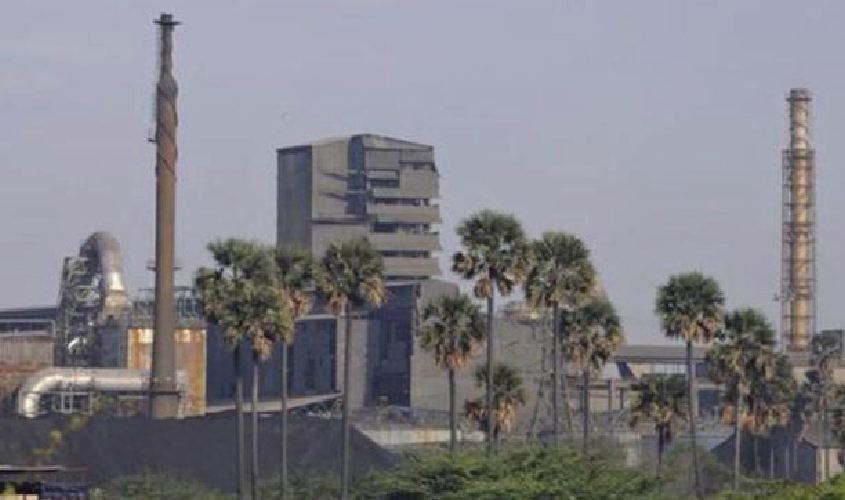The casualty is the image of India as an investment destination.
Prime Minister Narendra Modi is often accused of focusing on optics rather than on substance, but it is wrong to single him out, for he is not the only politician who equates statecraft with perception and event management; everybody else does that too. Only Modi does it with consummate skill and to terrific effect. The Tamil Nadu government’s decision to shut down the Sterlite copper plant and the Delhi state government’s desire to cap private hospitals’ profit margins underline the political class’ proclivity to present governance as a series of spectacular, populist announcements. The casualty is the image of India as an investment destination.
This is not to say that Sterlite, owned by the Anil Agarwal-led Vedanta, is a paragon of virtue, a socially responsible corporation worth emulating. It had many a brush with the authorities enforcing environmental laws. But, at the same time, it was not the security guards of the copper producer who shot at the protestors. The state administration and police were supposed to maintain law and order, which they conspicuously failed to do. The closure of the copper plant is not just a knee-jerk reaction on the part of the state, but also an instance of scapegoating.
Similarly, private hospitals in Delhi, and elsewhere, are often accused of indulging in sharp practice and ignoring medical ethics. However, the solution should pertain to curbs on wrongdoing; price controls and other statist steps cannot rectify the situation.
But, unfortunately, interventionist measures are the first resort of all politicians, for they are events that can be reported by the media, promoted on the social media, debated by experts, and sometimes applauded by the people. So, the second largest copper producer has been told to shut shop—a major announcement, breaking news, big splash. A few weeks ago, a hospital in Delhi too was shut down (it opened later).
Politicians play to the gallery, try to appease garrulous activists, and want to appear as the champions of the suffering masses. Similarly, price caps in the healthcare sector help our political masters to pose as humane, concerned leaders, forever devoted to the poor and the middle class.
The idea of statecraft in India involves play of sentiments and feelings. When sentimentalism fails in governance and economy, which happens invariably, the cure is sought in greater sentimentalism. Hence, the shutdown of the Sterlite plant and caps on private hospitals’ profit margins.
Unsurprisingly, facts and reason play little role in the affairs of the state, so the decisions taken often have deplorable consequences. The sudden shutdown of Sterlite Copper means the companies in such consumer durables as fans, air-conditioners, and power cables will have a tough time, as also would the consumers. A business newspaper (30 May) quoted Milan Mehta, vice-chairman of Winding Wires Association, which is also a client of Sterlite, as saying, “This is a blow to the stability that the downstream industry had with supplies intact from Sterlite and Hindalco.”
Hindalco Industries, of the Aditya Birla group, accounts for 49% copper, while Sterlite 48%; the rest comes from the public sector Hindustan Copper. Mehta said, “The supply chain will be affected severely and we will have to rely only on one supplier, which is not healthy from the business point of view.” “In anticipation of a shortage, traders had already started importing higher quantities of copper from March. This shortfall will now be met mainly via imports,” an executive with Hindalco Industries told the business newspaper. “Our export commitments are long term and to that extent, these cannot be diverted to the domestic market if there is a shortfall here.” The shortfall would be met with imports and this would cost $2 billion of forex outflow, according to Sterlite Copper chief executive officer P. Ramnath. Further, the closure of Sterlite is likely to hit direct and indirect jobs in thousands, the figures quoted ranging from 26,000 to 50,000.
The Delhi state government’s proposed move to cap profit margins in healthcare will also make the thriving sector much less attractive. According to an official website, “The hospital industry in India stood at Rs 4 trillion (US$61.79 billion) in 2017 and is expected to increase at a Compound Annual Growth Rate (CAGR) of 16-17 per cent to reach Rs 8.6 trillion (US$132.84 billion) by 2023.” With politicians and bureaucrats breathing down businesspersons’ neck, one wonders how this sector would reach the Rs 8.6 lakh crore in the next five years.
At the heart of the problem lies the predilection of politicians to regard governance as a series of events, whereas it really is a process involving a great deal of sincerity, diligence, and even drudgery. Such issues as environmental degradation and sharp practice can be properly addressed only by systemic

